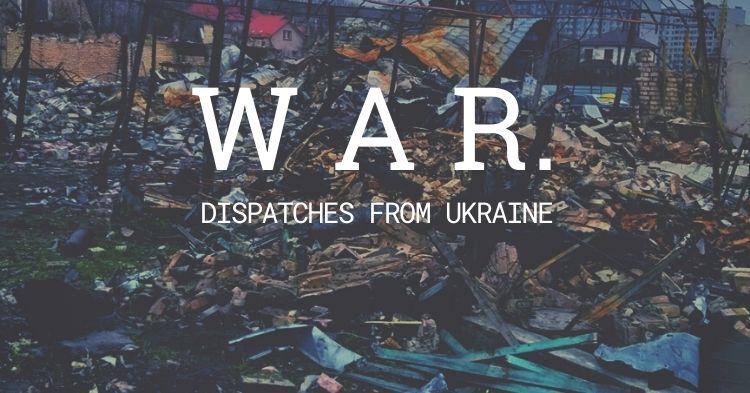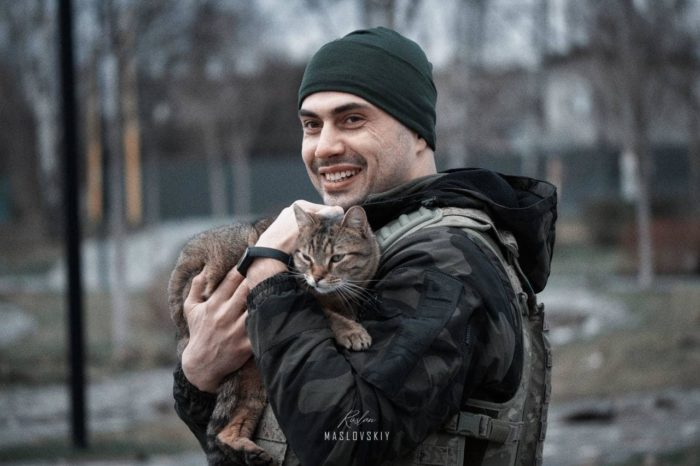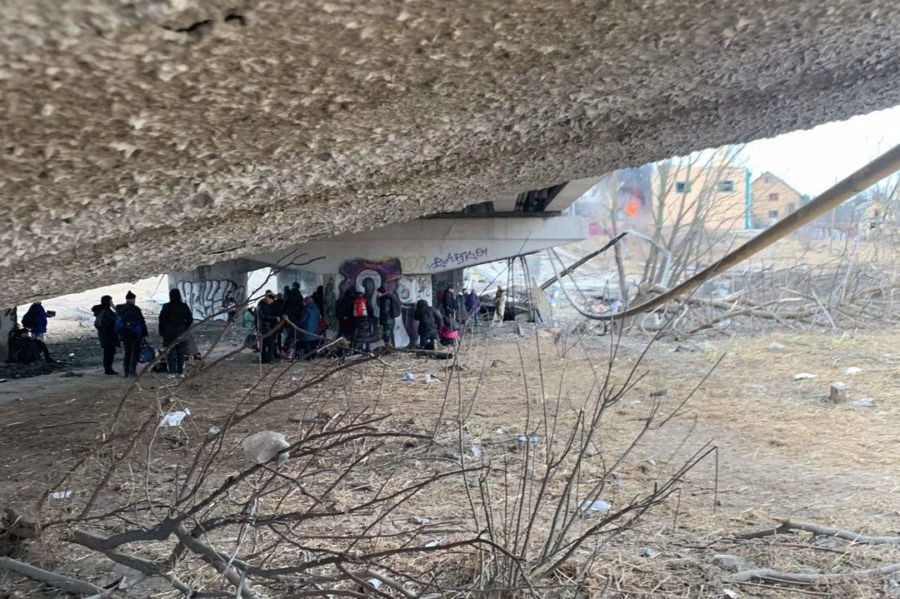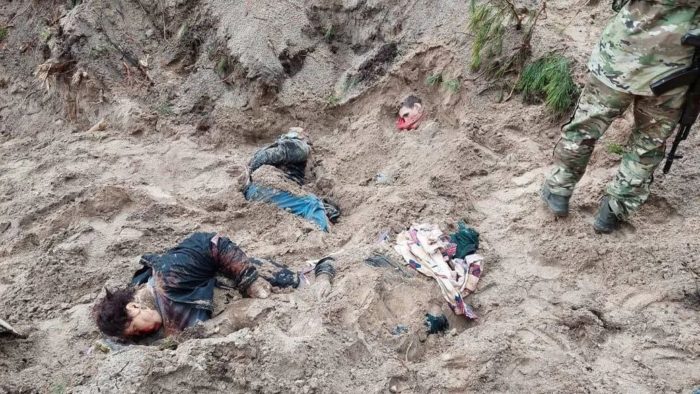I stood on the sidewalk, full of motor oil stains, engine parts, and fragments of uniforms near a totally destroyed house in Bucha.
The iron fence fell into the yard, bearing distinct tank tracks. Only charred remnants of the walls were left of the completely new house, built just a year ago.
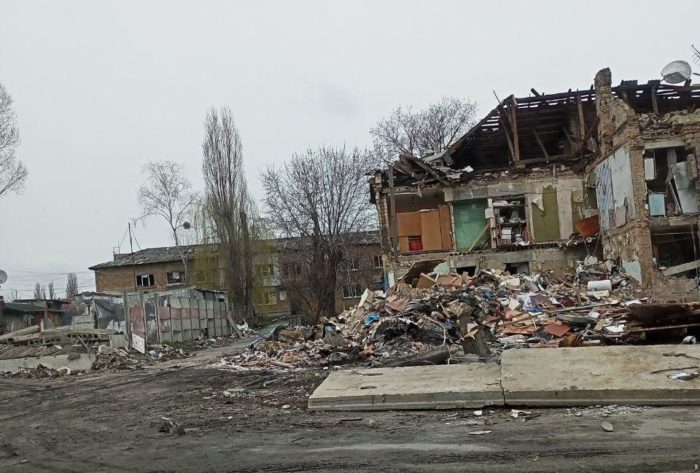
Before the war, the house was surrounded by picturesque scenery, with loads of trees and bushes. Now, it’s a cemetery for dozens of Russian tanks and APCs, as well as houses of Ukrainian citizens. The smell 0f smoke, petrol, motor oil, and gunpowder is still in the air.
Suddenly I heard a subdued voice nearby. I turned my head towards it. I saw a young woman with completely grey hair, a tear-stained face, and completely dried out lips. She looked as if she morphed into an old woman in a minute. She wore an old coat, something remotely resembling jeans, and dirty boots.
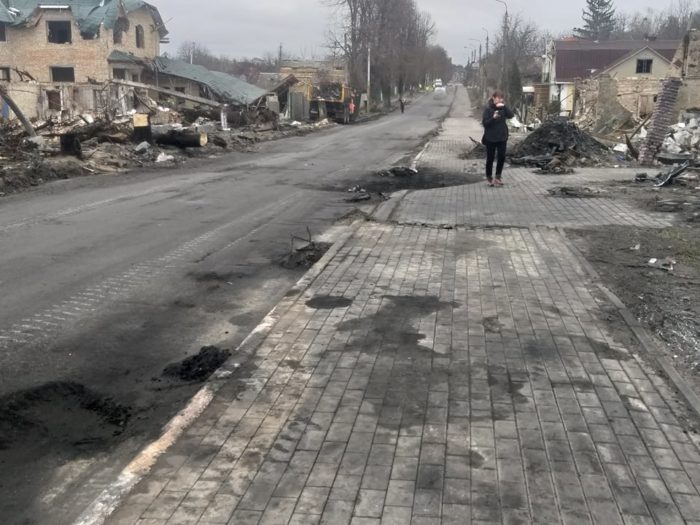
“Excuse me. Could you help me, please? I can’t do anything with it,” the woman asked me in a trembling voice.
“Certainly. What can I do for you?” I answered.
She handed me a bottle of still water and asked me to open it. Her cracked, soot-black hands shook violently. I felt that opening a bottle of water was just a reason to continue the conversation.
I tentatively asked her: "Are you local?"
The woman took several large sips of water and nodded her head in the affirmative. I gently grabbed the bottle from her hands, closed it, and gave it back to her.
“Yes, I used to live here,” she said, pointing to the house that no longer exists.
"I'm sorry. And please excuse the trite words. I really don't know what to say in this situation," I said.
The girl lifted her head and looked at me. There was an emptiness in her eyes.
"That's all right. Nobody knows what to say in a situation like this." She took a small timid step toward me. “I am here because I want to find my husband. Ex-husband. We divorced just a few weeks before the war. He stayed in this house. I moved with my daughter to my parents. But his body was not found here. The police say that perhaps it is among those who lie in a mass grave at the other end of the city. I’m really afraid to go to the body’s identification procedure. I come here every day. And I don't know why. I just come,” she said in a barely audible voice.
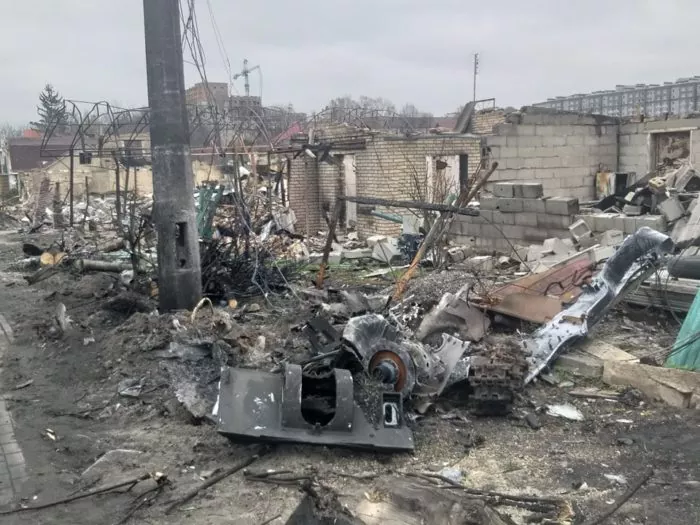
The woman took several deep breaths. Apparently, she wanted to share her story for a long time. But it seemed there was no one around she could talk to.
Actually, I came to Bucha with my friends, volunteers from Poland. They brought medicines, blankets, and food to those who suffered the most from the Russian invasion. They were simply shocked by what they saw.
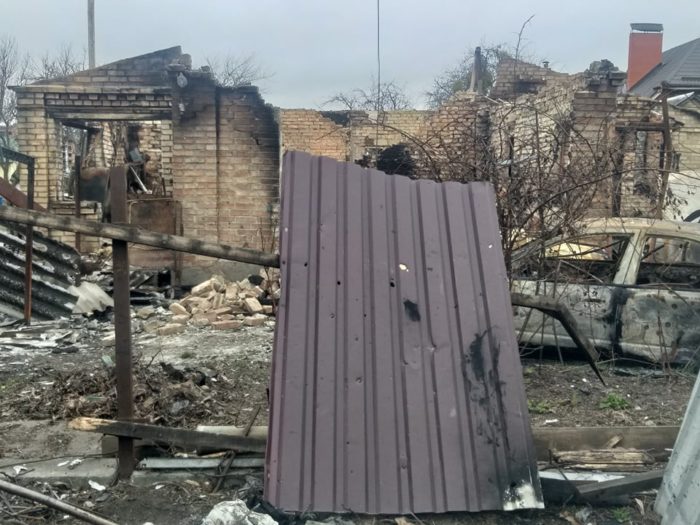
The city of Bucha was such a small charming town near Kyiv, where the middle class lived before the war. After the invasion, Bucha was turned into a big torture chamber. The Russian Army simply shot people on the streets, destroyed houses, and robbed and raped women and children. Yes, it's true, they raped an 11-year-old boy in front of his mother. This horrifying story was told to us by a policeman at a checkpoint. But we never dared to go to the house where it happened.
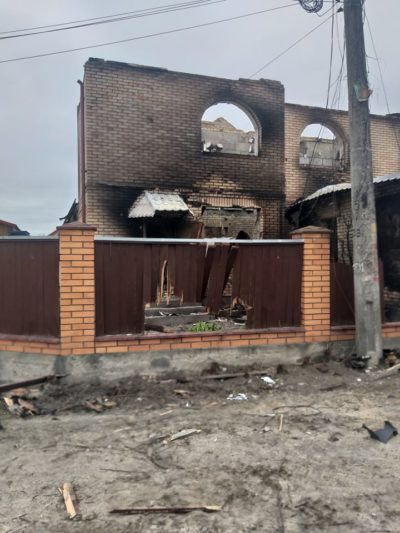
Irina, that was the name of the girl who came up to me and timidly asked for a cigarette. She said she never smoked before the war. And now it seems to her that a cigarette allows her to relieve stress. I said that I quit smoking a long time ago. She burst into tears.
Another woman, who was accompanied by her husband, shouted loudly "who could give birth to such monsters?" while looking at her house burned to the ground. “That’s a good question!” answered my Polish friend.
Related:
- Bucha massacre: Ukraine urges ICC to gather evidence of Russian war crimes
- “Russian invaders gunned down a car with children” – Ukrainian family who escaped besieged city
- “They were shot in the back of the head.” Eyewitness account of Russia’s murders of Bucha residents

